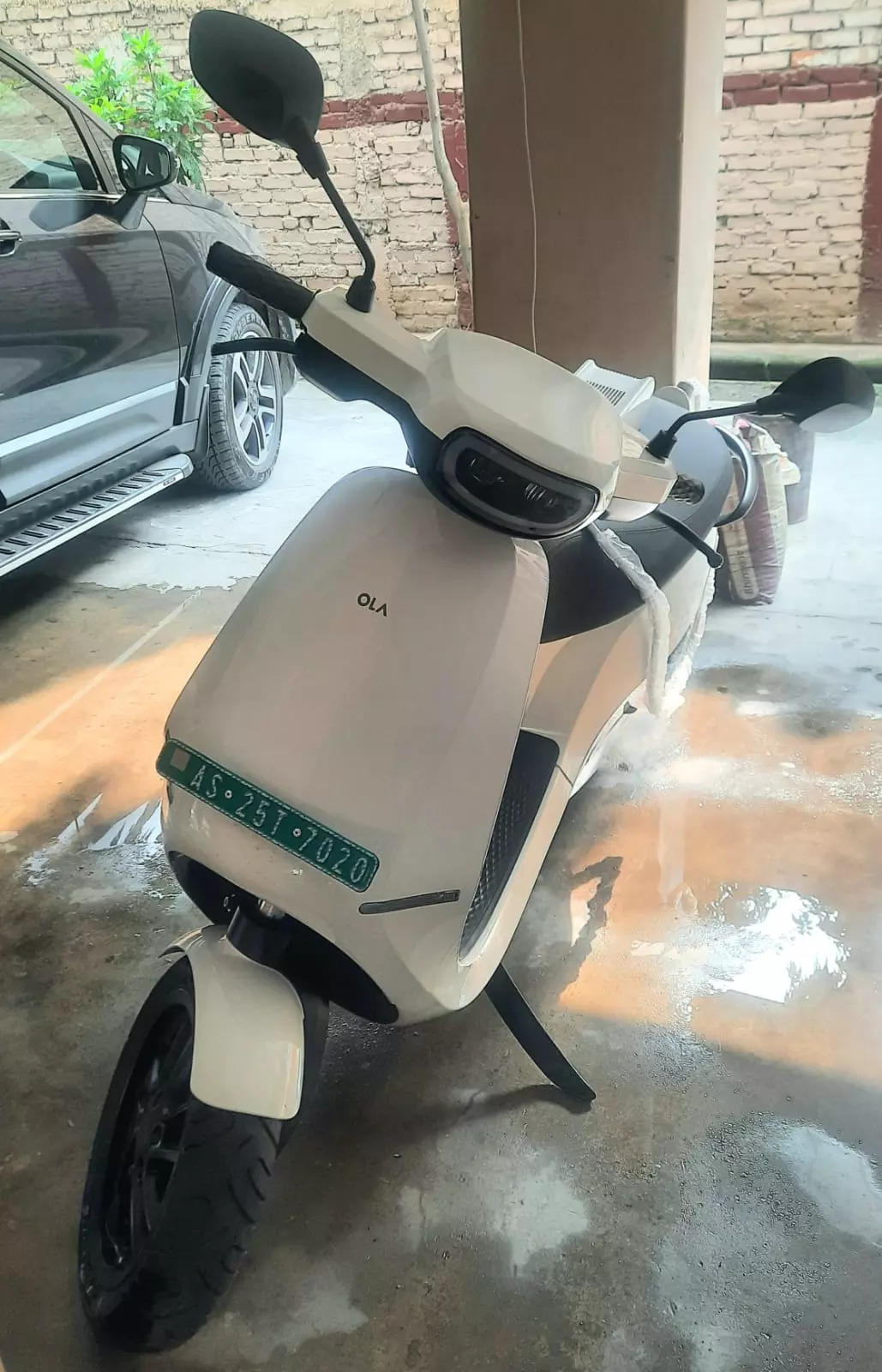
New Delhi: Ola Electric finds itself in a new tangle all over again. This time, it is with regards to data privacy rights of its customers.
After the son of a Guwahati based customer Balwant Singh met with a serious accident on April 15, Singh blamed the regenerative braking of the scooter for the mishap. Ola came out with its defence on April 22 sharing telemetry data on social media platforms that suggested that the scooter was being driven rashly. Singh has however taken exception to the company not respecting his data privacy rights.
“You are hereby notified to take down the telemetry data of my scooter from your social media accounts across the internet at the earliest failure to which I will be bound to take legal action againt your company,” Singh said in a notice to Ola on Tuesday. “Ola and I had signed an agreement of sharing data only for your private access. The posting of telemetry data online in public medium is breach of privacy agreement between me the User and Ola Electric the seller.”
“When I had a talk with Ola Executive Mr Chandan Kumar to share the data with me, he had insisted that this data was proprietary of Ola Electric and could not be shared to others or 3rd parties. Yet you violated your own terms and conditions and revealed the data to all,” he added.
The incident has ignited a furious debate on who owns the data, a highly controversial aspect that is bound to become critical as vehicles are equipped with more connected technologies churning out reams of data.
India is yet to finalise its data privacy bill which makes ownership of data a grey area in the country. In this fracas between Ola and Singh, netizens and cyber security experts sided with the latter.
“There is no express legislation in India dealing with data protection. Information Technology is the only mother legislation that we have where we have got only some elements on data protection,” Pavan Duggal, a cyber law expert, said.
He further explained that the moment you are disclosing information pertaining to a vehicle, it ought to have complied with IT rules 2011 and IT rules 2021.
“Rule 7 of the IT rule 2021 says that if the corporates do not comply with the rules, not only their statutory exemption from legal liability is going to be taken away but more significantly they are liable to legal consequences,” he added.
According to Duggal, today the companies still fail to see data as a valuable commodity, they usually see this as a mechanism of exploitation for monetisation and generation for funds.
“It is high time that the company needs to be more vigilant in how they deal with third parties and data. One should not be in a hurry in revealing the information you may expose to legal liability both civil and criminal under the IT act and IT rules,” he added.
Nikhil Pahwa, digital right activist and expert in the field of cyber security and data privacy-related issues, raised questions on Ola Electric’s privacy policy agreement. “It seems that they’ve taken not just the right to track customers but also publicly disclose data about customer behaviour. If they haven’t taken these rights in their privacy policy then this is a violation of privacy,” he said in a series of tweets on April 15.
Terming Ola Electric’s action as an ‘attack on the customer’s character’, Pahwa also added “This disclosure basically tells customers that Ola doesn’t just track you. It also reserves the right to publish data about your riding behaviour and share it with the world. Essentially, they’re doxing customers, and can do this to anyone.”
The incident came into light on April 15 when Singh tweeted that a fault in Ola’s electric scooter brakes had led to his son’s accident.
“I had purchased a new Ola S1 Pro. On March 26, 2022 my son had an accident due to a fault in regenerative braking where on speed breaker instead of slowing, the scooter accelerated sending so much torque that he had an accident,” read his first tweet.
“The scooter went airborne crashing and skidding. My son was severely hospitalized on March 26 where he had fractures in left hand and 16 stitches in right hand due to a fault in Ola S1 Pro,” Singh added in another tweet on April 15.
Days after a string of tweets from the victim’s father, OLA Electric issued a statement on April 26 in which it said that the rider was over-speeding during his ride at night and it’s scooter was not at fault. It denied that an accident involving its flagship electric scooter had anything to do with defective brakes.
“We did a thorough investigation of the accident, and the data clearly shows that the rider was over-speeding throughout the night and that he braked in panic, thereby losing control of the vehicle. There is nothing wrong with the vehicle,” the company said based on its internal investigations.














